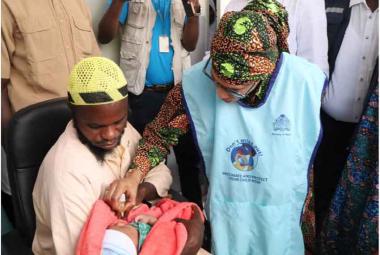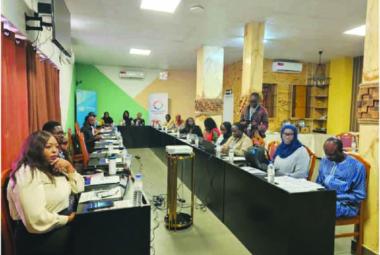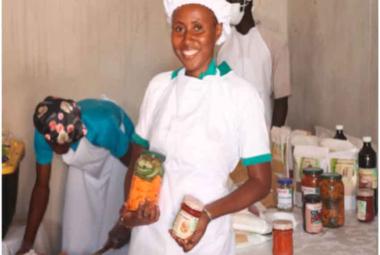By Fatou B. Cham
The Ministry of Agriculture, Livestock, and Food Security (MoALFS), in collaboration with the Islamic Organisation for Food Security (IOFS), and the UN Women, has recently completed a two-day cassava forum held at a local hotel. The workshop is designed around a strategic roadmap to guide participants through a consultative, inclusive, and comprehensive process for identifying challenges, brainstorming solutions, and developing actionable implementation plans that aim to lift all states of the cassava value chain. Hon. Dr. Demba Sabally, Minister of Agriculture, Livestock and Food Security in his opening statement said the optimisation of the cassava value chain of OIC member countries would immensely contribute to food security and enhance the livelihood of rural population; especially smallholder farmers.
He informed the gathering that this came about as a result of his discussion with the Director General (Ambassador BerikAryn) of the Islamic Organisation for Food Security on the margins of the 5th OIC Summit held in Banjul on the 3rd May 2024. The Minister thanked Ambassador BerikAryn and the IOFS for the opportunity and the trust to host the workshop. He also thanked the UN Women, the national organising committee, and the trainers for their invaluable participation in the successful hosting of the workshop; the FAO, WFP, DoA, and projects under the Ministry, for the financial and technical support to the event.
Dr. Mustapha Ceesay, Deputy Country Representative, FAO The Gambia, noted the importance of cassava. He said cassava is an essential part of the diet of more than half a billion people and it provides livelihood for millions of farmers, processors and traders around the world, adding that it is one of the most strategic crops throughout the tropical world. “Cassava, despite its importance as a staple crop and industrial raw material, and its contribution to fighting hunger and poverty in developing countries, has often been neglected in agricultural development policies. So, today is an exceptional day as we gather to set the stage for vital policy decisions on cassava,” he alluded.
Dr. Ceesay revealed that in 2015 FAO supported the articulation and validation of a Cassava Development Strategy to boost cassava production in The Gambia and to promote large-scale production and market improvement for commercialisation. Sarah Razafindramanana, representative of the UN Women, commended Government of The Gambia and the Ministry of Agriculture for hosting the cassava forum, and noted the significance of the initiative. The forum was attended by farmers, processors, researchers, extension agents, policymakers, NGOs, private sector players, and financial and technical partners, among others.







